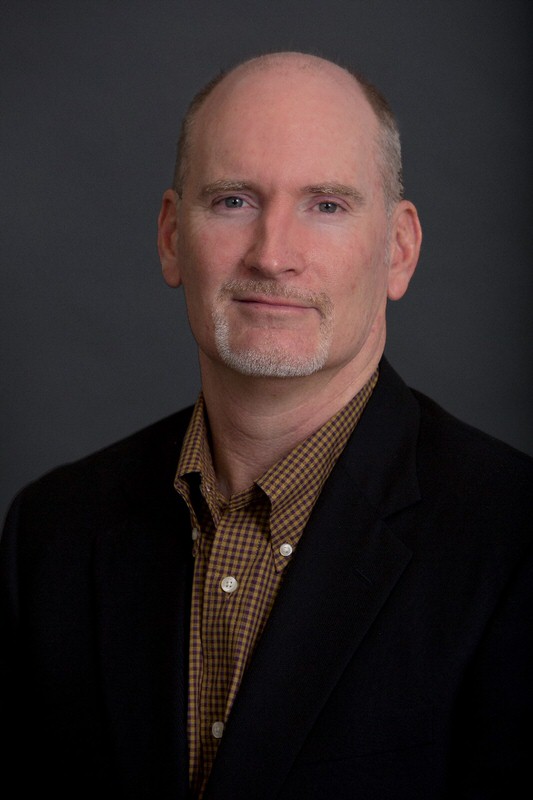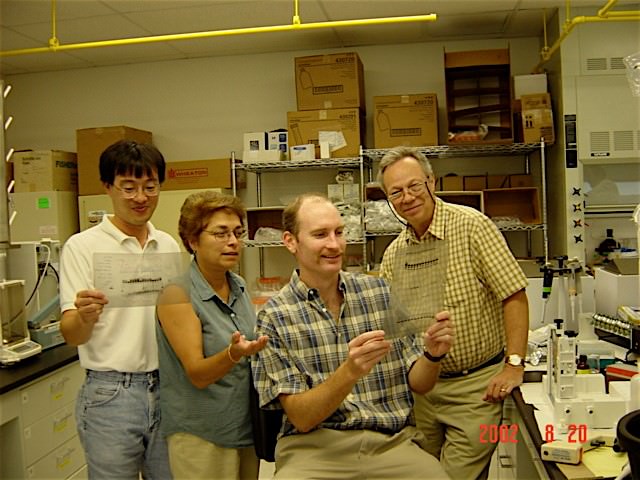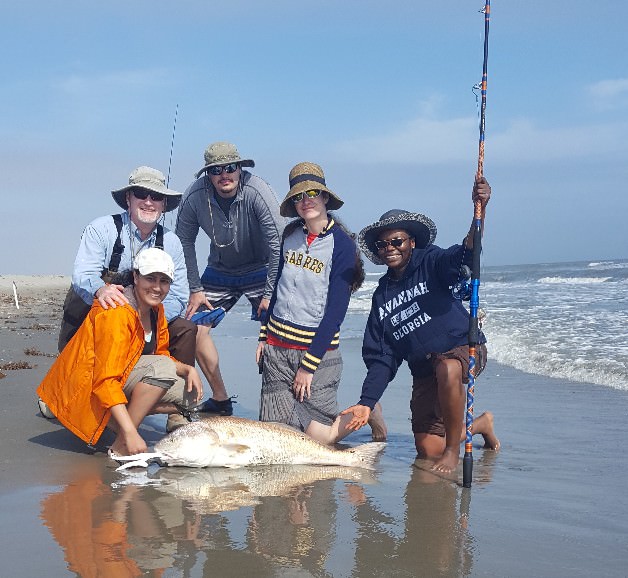Alumni Spotlight: Dr. James Jackson, Assistant Professor, Department of Biochemistry and Molecular Biology, Tulane University
 1) When did you first become interested in science?
1) When did you first become interested in science?
I was interested in nature my entire life. I grew up in the Texas Hill Country surrounded by wildlife. I was always hunting, fishing, creating bug collections, growing things in the garden, activities like that. I don’t know exactly when I started practicing science, and by that I mean testing hypotheses. I can remember at a very early age thinking that some things I was told by adults made no sense in the physical world. I would test these statements in various ways, even as child. I can also remember being able to recognize errors people would make in assigning causation to correlative events or meaning to random chance events based on a tiny sample size.
2) Why did you pick The University of Texas Health Science Center at San Antonio and your program?
I graduated from UT Austin and got a job working with Doug Yee at UT Health San Antonio right out of college. When I entered grad school, I knew many faculty already and decided UT Health San Antonio would be a good place.
3) Tell me more about your career path.
I worked with Doug Yee, and then Mike Brattain, for about 10 years before grad school. When I entered grad school, I already had six or seven first author papers in journals like JBC and Cancer Research. Being able to “do science” already really jump started my graduate career. I joined Olivia Pereira Smith’s lab in C&SB. She gave me complete freedom to continue and build on my previous experience. I was awarded a Department of Defense (DoD) fellowship to study breast cancer, my previous area of work, and senescence, Olivia’s area of expertise.
I graduated in about three and a half years, and then went to MD Anderson for a postdoc in Gigi Lozano’s lab where I trained in mouse models of cancer. I was fortunate enough to receive funding for this stage of my career also. It took five years, but I published a surprising finding on how the tumor suppressor p53 is actually detrimental to chemotherapy response in breast cancer because of induction of senescence instead of apoptosis.
Unfortunately, that paper was published in Cancer Cell and not CELL, so no job offers were tendered, despite an enormous effort. When it was clear I needed more, I began writing and submitting independent grants under the title of Instructor, and was awarded a DoD Breast Cancer Grant for $1.1 million. With that, I was able to finally receive a faculty position offer, at Tulane School of Medicine in New Orleans.
4) Tell me about your current career, what do you do?
I study breast cancer tumorigenesis and treatment response using, primarily, mouse genetic model systems. Cellular senescence is a very strong phenotype in treated p53 wild type tumors. One of our projects is attempting to eradicate senescent cells from a treated tumor to improve response. We are also using genetic marks to track senescent cells in vivo following treatment.
5) What is a day like in your job?
I am mostly in my office. I meet with students and postdocs at various times throughout the day about findings and experiments. I try and support their research rather than do experiments myself, for the most part. I will help image mouse tumors, or inject cells, or write down tumor measurements, all of which help me keep an eye on things, but I don’t generally do start-to-finish projects.
I seem to spend a lot of time evaluating. I review papers for journals, I review grants for agencies and also for colleagues preparing to submit. I read grad student proposals, theses, abstracts, etc. I am also preparing documents for my lab’s evaluation all the time. Grant progress reports, my progress report for the department, the department’s progress report for the university, etc. Then, I always have a few grants I am working on. Big ones, small ones, extramural and internal. We all eat lunch together every day as a lab, which is nice. In the evening, my senior postdoc is the last one in the lab, and we have some nice chats about how the lab is running, experiments, etc.
 6) How did the education you get at The University of Texas Health Science Center at San Antonio prepare you?
6) How did the education you get at The University of Texas Health Science Center at San Antonio prepare you?
I think you can tell from looking at my career path and current research that studying senescence at UT Health San Antonio has been key in my career. It resulted in a critical finding in my postdoc, and continues to be something that constantly pops up in tumor response to treatment in vitro and in vivo in my research today. I will say as well that as I have become familiar with other graduate programs, I have come to really appreciate the outstanding coursework I had at UT Health San Antonio. Ellen Kraig/Dave Kolodrubetz’s Molecular Biology course, the Cell Biology course taught by Brian Herman, Bandana Chatterjee, Robin Leach, et al, Lee Henn’s Biochemistry, and Bill Morgan’s Statistics courses were all better than I have observed any other place.
7) What is the most challenging part of your work?
I have done a lot of research in my career and worked with and trained many people. The most challenging aspect of my job today is when a student brings me a result that is impossible, not “negative” or “inconclusive,” but impossible, and is not explained by any mistake or any conceivable action. And I have seen a lot of mistakes…
8) What is the most rewarding part of your work?
In my current role, the crafting of a large grant proposal to completion is satisfying and rewarding. Combining an exciting question, a solid plan, and preliminary data that answer all potential criticisms, is nice.
9) What has been your proudest achievement?
I feel that is yet to come.
 10) What would you tell a current student interested in your career? Any advice?
10) What would you tell a current student interested in your career? Any advice?
Without a doubt, my advice is to aim high. Aim to do a postdoc in the best possible lab, at the best possible place. Aim to get the best, biggest grants, aim for the best paper possible. And then do one more experiment to make that study just a little bit better. Once you publish and/or finish a step in your career, you cannot go back and change anything when you realize how competitive it is for jobs and grants. There is no reason you cannot be that student/postdoc that reaches for the stars and makes it.
11) What do you like to do outside of work?
When I was in Houston, being so close to the coast, I decided I would take up surf fishing. This has expanded into quite a past time. I really enjoy fishing from the beach instead of tinkering with a boat motor, trailer lights, registration stickers, etc, in order to bay fish. I brought my knowledge of the surf from Texas to Louisiana, and I try to go regularly to Grand Isle. It is almost all catch and release for bull redfish and black drum. I also started catch and release fishing for sharks off the beach in Texas, and now I go to Florida to do that. Last year, I caught and released an 11.5′ great hammerhead. This photo is a photo of myself with my lab when we went fishing together.
